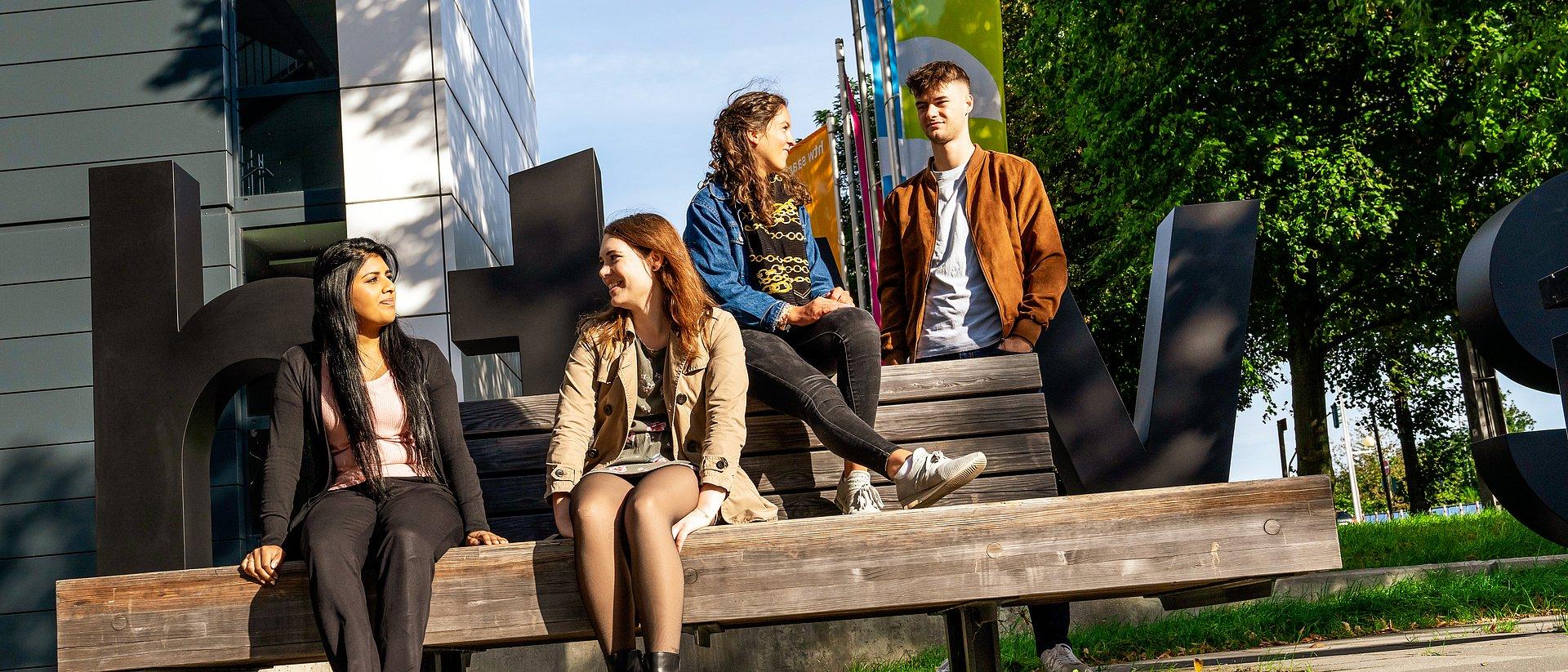
On this page you will find current calls for bachelor or master theses from the research group time4.CE of Prof. Dr.-Ing. Christian Köhler.
If you are interested in a topic, please contact the linked member of our research group.
Brief description:
The aim of this thesis is to investigate how the use of artificial intelligence (AI) influences the efficiency and validity of the life cycle assessment (LCA) process. The aim is to test AI-based approaches for estimating material compositions, weights, manufacturing type and origin of complex components and to evaluate their accuracy and limitations in an industrial context. The work is based on real component and process data from an Industry 4.0 model factory and compares AI-generated estimates with manufacturer information and database entries.
Contact:
Lukas Lang, M.Sc.
t +49 (0) 681 / 5867 - 979
lukas.langnoSpam@noSpamhtwsaarnoSpam.de
Brief description:
The aim of this thesis is to develop a practice-oriented guide that supports the efficient and transparent preparation of life cycle assessments (LCA) for digitized production facilities in the context of Industry 4.0. The aim is to provide users with a structured step-by-step guide that addresses typical challenges such as data availability, selection and use of LCA software, integration of digital tools (e.g. IoT, digital twins), dealing with uncertainties and documentation of the results. The work is based on real data and processes from a model factory and offers the opportunity to integrate your own best practice examples.
Contact:
Lukas Lang, M.Sc.
t +49 (0) 681 / 5867 - 979
lukas.langnoSpam@noSpamhtwsaarnoSpam.de
The complete topic can be downloaded here.
Brief description:
In recent years, the concept of sustainability has gained immense importance, but due to the inconsistent definition, it is not always uniformly understood. This is particularly reflected in the three dimensions of sustainability (ecology, economy, social issues); the economic dimension in particular is difficult to distinguish from the other two dimensions. The aim of the thesis is to obtain a more precise overview of this dimension, to differentiate it from the other two dimensions and to identify similarities. Furthermore, the aspects of the economic dimension are to be explained and, if necessary, summarized using a case study.
Contact:
Jonas Mohnke, M.Sc.
jonas.mohnkenoSpam@noSpamhtwsaarnoSpam.de
The complete topic can be downloaded here.
Brief description:
In order to counteract the consequences of climate change and prevent irreversible damage to the environment and people, numerous strategies for the development of sustainable products, so-called synthesis methods, have been developed in recent years. The earlier these methods are used, the more effective they appear to be, due to the eco-design paradox. This means that by integrating sustainability methods early on in product development, the most sustainable products possible can be developed. In order to keep these methods as effective as possible, some of these methods include the entire product life cycle, which therefore also has an impact on the choice and development of the business model. The aim of this thesis is to gain an overview of sustainability methods (synthesis) in connection with the selection of a sustainable business model and to work this out systematically. In addition, the most critical phases in this development as well as research gaps are to be identified, which can possibly be answered with the help of an own process model.
Contact:
Jonas Mohnke, M.Sc.
jonas.mohnkenoSpam@noSpamhtwsaarnoSpam.de
The complete topic can be downloaded here.
Brief description:
In order to counteract the consequences of climate change and prevent irreversible damage to the environment and people, numerous strategies for the efficient development of sustainable products, so-called synthesis methods, have been developed in recent years. The earlier these methods are used, the more effective they appear to be, due to the eco-design paradox. Accordingly, by integrating sustainability methods early on in product development, the most sustainable products possible can be developed. The aim of this thesis is to create a guideline to support the (absolute) sustainable product development described above (right from the start) through the use of AI tools, especially chat bots such as Chat-GPT. In addition, the most critical phases in this development as well as research gaps are to be identified, which can possibly be answered with the help of a separate process model.
Contact:
Jonas Mohnke, M.Sc.
jonas.mohnkenoSpam@noSpamhtwsaarnoSpam.de
The complete topic can be downloaded here.
Brief description:
New technology developments must not only be useful and profitable, but also sustainable. To achieve this, they must be able to be evaluated and optimized economically and ecologically at the same time. Artificial intelligence (AI) technologies are also increasingly being used in industrial production. Users are often faced with the question of what ecological and economic advantages and disadvantages result from the use of AI. For this reason, a master's thesis will investigate which typical applications of AI already exist in production and how their ecological and economic effects can be systematically recorded and evaluated.
Contact:
Ouafae Menzel M. Sc.
ouafae.menzelnoSpam@noSpamhtwsaarnoSpam.de

